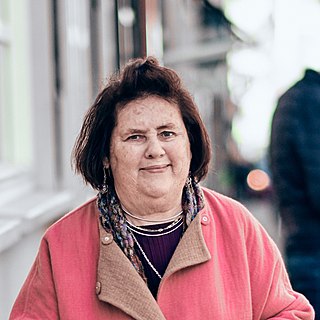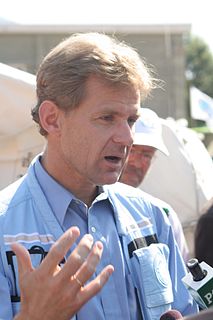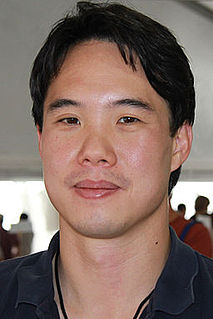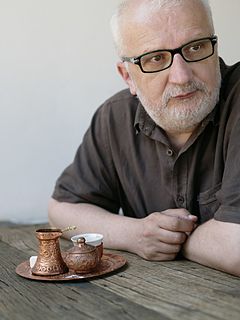A Quote by Margaret Thatcher
It is important not to allow ever wider coalition-building to become an end in itself. As we saw in the Gulf War of 1990, international pressures, particularly those exerted from within an alliance, can result in the failure to follow actions through and so leave future problems unresolved.
Related Quotes
I believe that the topic of chemical weapons is critically important for international peace and security, and I take note of the ongoing debate over what course of action should be taken by the international community. All those actions should be taken within the framework of the U.N. Charter, as a matter of principle.
Those who seek to improve our country through peaceful protest and protected speech, I want you to know that your voice is important. Do not be discouraged by those who use your lawful actions as a cover for their heinous violence. We will continue to safeguard your constitutional rights and to work with you in the difficult mission of building a better nation and a brighter future.
I voted against the war in Iraq. I voted against the first Gulf War. I think war is the last resort - the last option of a great military power like us. I think that we need to focus on building coalitions. Yes, ISIS must be destroyed. But it should be destroyed by a coalition of Muslim nations on the ground with the support of the United States and the other major powers in the air and in training the troops there.
After the end of the cold war, everybody thought, fantastic, finally the UN may be able to do what it was originally set up to do without big power divisions. It would be easy to get them to come together to resolve things. You will recall, on the first Gulf war, you almost got a unanimous resolution and a very solid coalition.
It takes a disciplined imagination to acknowledge that the less personal savageries of bombs, missiles, artillery and heavy weapons are, to those blown to smithereens, also barbaric. The main horror of what the coalition is doing is not a matter of the occasional soldier who, in the heat of battle, commits a war crime, but the steady destruction rained on cities, villages, the Iraqi people. This violence is wreaked calmly, from a distance, within the rules of engagement. The war itself is the American war crime.
I would say the special experience of American wartime policy in the last 40 years, from Vietnam on, is that the war itself became controversial in the country and that the most important thing we need in the current situation is, whatever disagreements there may be on tactics, that the legitimacy of the war itself does not become a subject of controversy. We have to start with the assumption, obviously, that whatever administration is conducting a war wants to end it.
Law is a process. If there is equality of process for everybody, then that's our definition of justice. Whether or not what is done is right or wrong, you follow the process. And so, the end result is just by definition within that alternative universe that is American law. Most people still operate within a moral universe where principles of good and bad and what is right and wrong in itself, and not just as a result of the process.
The Panic of 1819 exerted a profound effect on American economic thought. As the first great financial depression, similar to a modern expansion-depression pattern, the panic heightened interest in economic problems, and particularly those problems related to the causes and cures of depressed conditions.








































